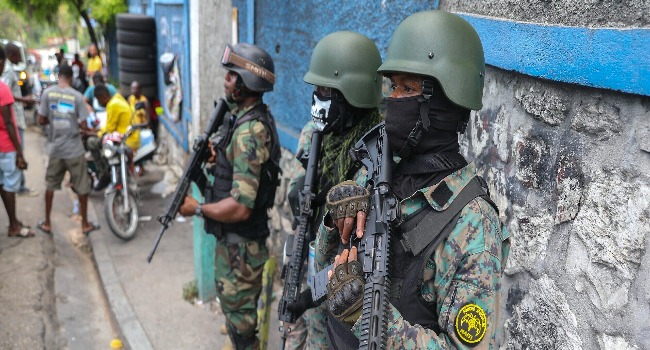200 additional Kenyan police deployed to tackle Haiti gang violence
A second contingent of 200 Kenyan police officers left Nairobi for Port-au-Prince early Tuesday to join the UN-backed Multinational Security Support Mission in Haiti, senior officials said Tuesday. This follows the June deployment of 400 officers, with Kenya planning to send a total of 1,000 officers to bolster efforts to combat rampant gang violence and restore stability in the Caribbean nation.
President William Ruto, facing domestic protests is committed to the mission, which will include around 2,500 personnel from African and Caribbean countries. The UN supports but does not manage the mission.
Kenyan police confirmed the officers’ safe arrival and cooperation with Haitian police. Legal hurdles delayed the deployment, but a bilateral agreement with Haiti was secured in March.
The US funds and supports the mission but will not send troops. Human Rights Watch and others have raised concerns due to Kenya’s police force’s history of excessive force.
The first U.N.-backed contingent of foreign police arrived in Haiti on Tuesday, June 25, 2024 nearly two years after the troubled Caribbean country urgently requested help to quell a surge in gang violence.
Four hundred police officers from Kenya landed in the capital of Port-au-Prince, whose main international airport reopened in late May after gang violence forced it to close for nearly three months.
The Kenyans’ supported by allied multinational force are combating violent gangs that control 80% of Haiti’s capital and have left more than 580,000 people homeless across the country as they pillage neighborhoods in their quest to control more territory. Gangs also have killed several thousand people in recent years.
The multinational force was approved by the U.N. Security Council and is funded by donations. The U.S. has contributed $200 million.
The Kenyans’ arrival marks the fourth major foreign military intervention in Haiti. While some Haitians welcome them, others view the force with caution, given that the previous intervention — the U.N.’s 2004-2017 peacekeeping mission — was marred by allegations of sexual assault and the introduction of cholera, which killed nearly 10,000 people.
Hours after the Kenyans landed, Prime Minister Garry Conille thanked the East African country for its solidarity, noting that gangs have vandalized homes and hospitals and set libraries on fire, making Haiti “unlivable.”
“The country is going through very difficult times,” he said at a news conference. “Enough is enough. … We’re going to start working little by little to retake the country.”
An estimated 1.6 million Haitians are on the brink of starvation, the highest number recorded since the devastating 2010 earthquake, according to the U.N.



